I have been involved in residential property management since 1987. Over the past few decades, I have seen the good and the bad. The industry has changed immensely.
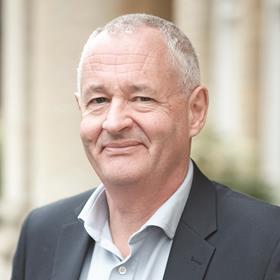
From a London-focused sector resistant to change, to nationwide and rapidly improving. Back in the 1980s, the urban centres of regional cities were not as popular as they are now. People lived out in the suburbs and commuted into cities, and any night-time socialising would be done on the outskirts of towns.
All of that has changed. With improved public transport and road infrastructure, people gradually began to gravitate towards city life with its emerging new options. In the 1980s and 1990s, we saw developers buying local housing blocks from underfunded councils, followed by a boom in the construction of bigger housing blocks, with more glass, leisure facilities and amenities on offer.
We are now seeing an appetite for a feel of community, with shared greener outdoor spaces, without the burden of the upkeep of a private garden.
The property management industry had to change massively over this period to respond to these many changes. The dynamic has changed from ‘tenant’ to ‘customer’. The whole industry is now more about people, not just buildings, than ever before. Customers are now better informed and, quite rightly, more demanding, with increased and more personalised customer service expectations and appetite for new technology, which meets their need for swift and efficient responses.
The impact of emerging technology
As in almost every other industry, technology has had a massive impact over the past few years. Previously, the relationship between customer and property management company was perceived as slow, but with the advent of the internet, people are expecting faster – and better – communication.
At FirstPort, we have invested significantly to raise the bar in terms of our technological offering to better serve our customers, clients and contractors and give time back to colleagues to deliver better ‘human’ experiences. At the heart of our transformation programme is a cutting-edge digital platform that uses best-in-class products across customer service, accounts, supply chain and asset management, so that we can make customers’ lives easier.
The dynamic has changed from ‘tenant’ to ‘customer’. The whole industry is now more about people, not just buildings, than ever before. Customers are now better informed and, quite rightly, more demanding
We can now offer our services at any time of the day and from anywhere in the world. Whether it is noon in London or 4am in Singapore, our customers can check on their homes wherever – and whenever – they are. Customers are kept better informed about what can be an ‘invisible’ service at times and this increases transparency and trust, which are at the heart of exceptional service.
Technology has also not only enabled us to improve the way we look after people’s homes, it has allowed us to be more responsive. For example, customers can use our online portal to report an issue, such as a broken light. With all the data we need at our fingertips, we can tell the contractor exactly which light is broken, precisely where it is located, and provide any other information they need to be able to fix this first time.
Customers can track the progress of this repair, receive automatic updates and also see any other requests submitted by their neighbours. This best-in-class technology means that everyone is 100% in the loop every step of the way.

Customers have always asked for value for money, but it is more important now than it ever was. Technology allows us to do more with our resources. And this is a good thing, seeing as a significant proportion of our customers have been working from home for a couple of years now and, as a result, see more issues in their homes more often. I am really pleased that we are being challenged more, though. It pushes us to be better.
Our relationship with developers has also changed. These days, we work closely with them to know as much as possible about the buildings we will be managing. We are brought into the process much earlier to advise on practicalities and how sites function from a customer-first perspective. A developer’s vision now extends beyond providing homes. They want to create communities and ensure a positive, long-standing social and environmental impact and legacy, such as recycling and EV charging points.
This new, improved relationship helps developers, too. From our decades of experience, we can tell developers at the design stage what might be an issue for the people living at the development before it ever becomes a problem. Residential developments are more complex than they have ever been, with a greater range of people living in buildings demanding a greater variety of services from their development and their building managers.
To help deal with this sea change, we are engaging in the kinds of partnerships with developers that we could not have fathomed back in the 1980s.
The future of property management
That is the past and the present of residential property management, so what does the future look like? To my mind, it is all about standards. We are regulated by ARMA, RICS and HSE and we carry a whole raft of health and safety accreditations, but a lot of the industry remains unregulated. Without clear legislation on what standards the industry needs to adopt, there are many less-than-reputable players out there continuing to give the property management industry a bad name by cutting corners and acting as if it is still the 1980s.
Expectations have changed since then and we need to establish a deeper level of engagement with customers.
The pandemic has shown how critical having a comfortable, safe and secure place to live is. And more time at home means our customers can clearly see the benefits of a good property manager. Technology helps us do this, but it is ultimately about people, better regulation and industry reform.
The government is making significant moves to give homeowners more control of their homes and the areas in which they live, which has to be a good thing because it means we are working more closely with residents than ever before. We work with over 1,000 resident-managed developments at present and, in the future, we expect that we will work with an increasing number of commonhold committees, too.
This model works well in developments around the country, giving residents direct power over their development and to choose their property manager. But it also comes with responsibilities that are not widely understood and can sometimes lead to confusion. In these cases, a big part of our role is to use our technical knowledge and expertise to provide guidance. This is one of the reasons better regulation of the industry is so important – so that the whole industry is providing a consistent professional service that promotes high standards and customer confidence that their home is in safe hands.
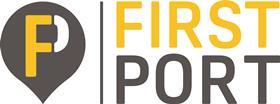
About FirstPort
FirstPort is the UK’s leading residential property service provider, caring for 290,000 homes in England, Wales and Scotland across 5,000 developments. With more than four decades of experience and 4,000 employees, FirstPort works with developers, investors, freeholders and over 1,000 resident-managed developments. Find out more here
The end is in sight
- 1
- 2
- 3
- 4
 Currently reading
Currently readingCustomers come first for today’s property managers
- 5
- 6
- 7
- 8































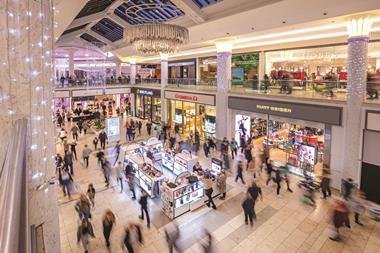
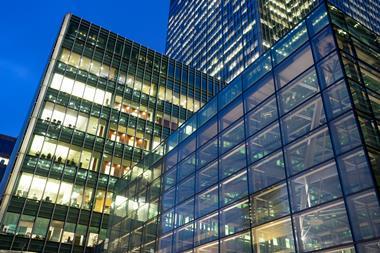

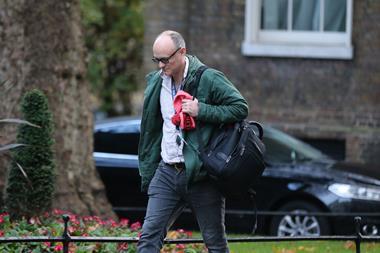
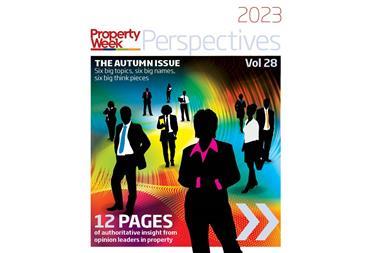
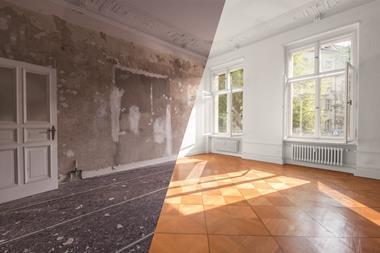
No comments yet